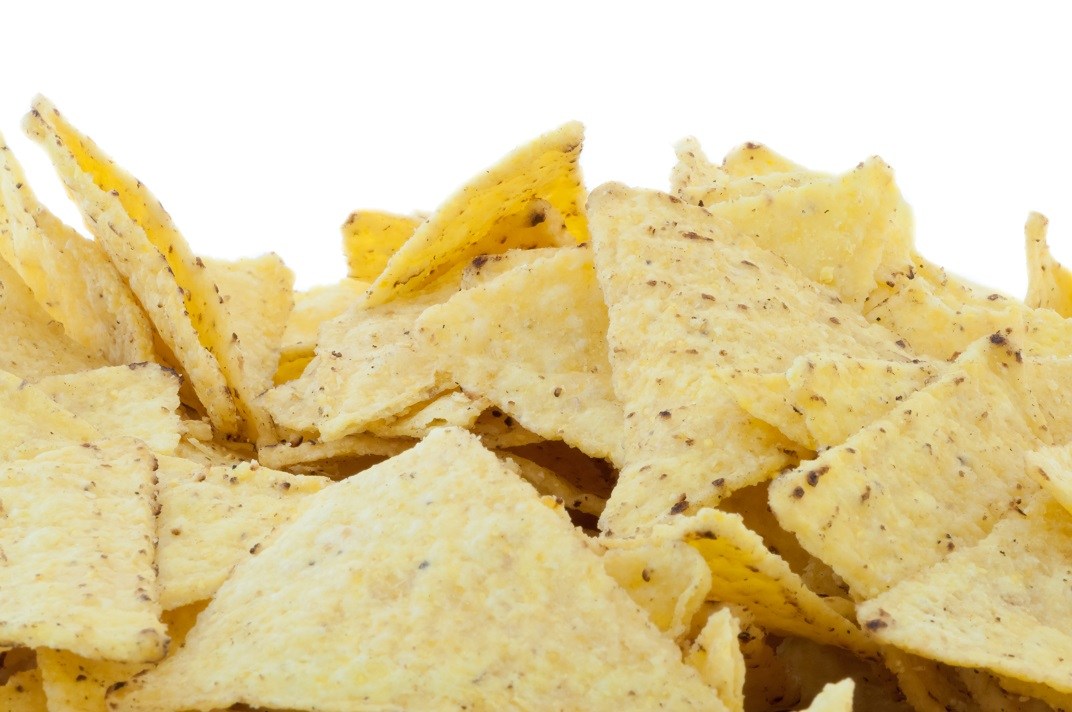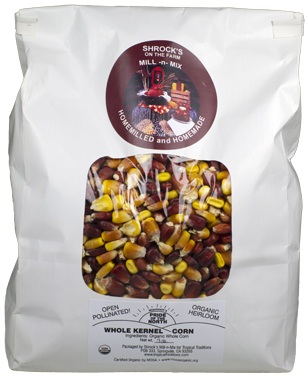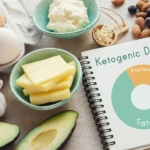
by Shannon Stonger
Health Impact News
The most difficult part of making corn tortillas and chips from dried corn is the nixtamalizing and grinding phases, which was detailed in the previous article. Once the masa is prepared, corn tortillas and chips are only a few simple steps away.
The following ingredients are needed for a single batch of 12-24 tortillas, depending on size:
- 2 cups dried corn
- 1 Tablespoon lime (calcium hydroxide)
- 1.5 teaspoons Himalayan salt
- Water, as needed
Create masa using the nixtamalizing and grinding process. The dough should be quite soft but not overly sticky. It takes a bit of time to get used to the texture so making a test tortilla is a good route. If the dough sticks to the wax paper or plastic, it is too wet and needs to stand, uncovered, for a while to dry out. If the tortillas crack around the edges and are dense and heavy, the dough needs more water. Be very careful to add only a drizzle of water at a time, working it into the dough and kneading it all together before adding more.
Press and Cook Tortillas
Along with your freshly ground masa, you will need the following equipment:
- 1 cast-iron tortilla press
- 1 sheet of wax paper or a plastic Ziploc cut slightly larger than the size of the press
- Cast-iron or stainless steel griddle or skillet
- Bowl or basket lined with a towel to hold tortillas
- Spatula
Directions
Preheat your griddle or skillet over medium heat for at least five minutes. Keep the masa in a bowl covered with a damp towel.
Line the cast-iron tortilla press with the piece of waxed paper or plastic. You can tape it to the press but this hampers the ability to peel the pressed tortilla from the paper and isn’t recommended for a first attempt.
For a six-inch tortilla, pull off a piece of dough the size of a golf ball. Roll it in your hands to form a ball and then press it between your palms to form a disk. Place this disk in the center of the lined tortilla press. Close the press, push down on the handle, and push down until it fills the diameter of the press. The thickness of the tortilla is up to the cook but keep in mind that if you are making chips you’ll want to press it as thinly as possible. To begin with, press it a little on the thicker side. As you become more comfortable with handling the dough, the tortillas can be pressed to as thin as you can handle without breaking the tortillas.
Open the press and remove the tortilla by picking up the waxed paper and tortilla together in your right hand. Inver this over your left hand and slowly peel away the paper with your right hand. Once the tortilla is separated from the paper, carefully slap it onto the griddle with your left hand. This may take a few times to master so don’t be discouraged if it doesn’t work perfectly the first time.
Cook the tortilla for about 15-20 seconds on the first side, or until you can easily slip a spatula underneath and flip it over. Cook the second side for 45-60 seconds, or until the bottom appears cooked and a slight browning occurs.
Now, flip the tortilla back onto the first side once more. Cook this for an additional 15-30 seconds. During this time it is desirable for the tortilla to puff up. Doing so creates a more tender tortilla that will be both flexible and strong. In any given batch it is common for some to puff and some not to. To encourage it to puff, you can tap the top of the tortilla during this last period of cooking. Also, cooking it over the hottest part of your griddle can help with the process.
Once completely cooked on both sides, move the tortilla carefully to a bowl or basket lined with a clean towel. The tortillas will steam inside of the towel which keeps them soft and ensures that they are cooked through.
Continue with the remainder of the masa until all of the tortillas have been made. Serve tortillas fresh from the basket. They are best eaten immediately but can be stored in an air-tight container and reheated on the griddle the next day. If they are slightly dry upon reheating, sprinkle some water over them as they warm on the griddle.
Making Chips
Corn chips are simply tortillas fried in fat and salted. Commercial corn chips are most commonly fried in rancid vegetable fats such as soy, cotton, or corn and are made with genetically modified corn. For the most fresh, delicious, and healthy corn chips, try homemade masa pressed into tortillas and fried in pure coconut oil.
First, take cooked tortillas that have been cooked (they can be day-old) and stack them no more than eight high. Cut them in half and then quarters and finally into eighths. This will result in eight triangular chips per tortilla.
There are two methods you can use to fry them. The first is a deep-fry method in which a narrow and deep pot is half-filled with coconut oil. The other is a shallow-fry which utilizes a large, wide skillet filled with only 1-2 inches of fat. In either case, it is extremely important for safety reasons to fill your pan no more than half-full of fat.
Begin by filling your frying vessel no more than halfway with pure coconut oil. Place this over medium-low heat. While the coconut oil melts and then heats up, ready a spider or slotted spoon or spatula and a kitchen thermometer, if you have one.
Heat the coconut oil to 350 degrees. If you do not have a thermometer, it is possible to test the temperature with a test chip. Drop the chip carefully into the fat and watch the edges of the chip. Bubbles should start to form around the edges and the chip shouldn’t look overly browned when you turn it over after 30-45 seconds. If bubbles don’t form directly after dropping in the chip, turn the heat up just a little. If the chips are browning too fast before cooking through, turn the heat down a little.
Proceed with frying by dropping several chips in the pan, one-by-one. The pan should be filled but not crowded. Flip after about 30 seconds and allow to cook on the other side, for shallow frying. Stir the chips around a few times during the 1-2 minute cooking time for deep-frying.
When the chips are golden brown and appear cooked, remove them carefully, allow the grease to drip back into the pan for just a second, and then transfer to a paper towel-lined plate. Sprinkle immediately with Himalayan salt.
Repeat cooking process with remaining tortillas.
Serve hot or store in an air-tight container for several days.
Straining and Saving Oil
Once all of the chips have been fried, allow the coconut oil to cool enough in the pan so that it can be handled. You can now save this oil to be used in other fried dishes.
Pour the cooled (but not solidified) coconut oil through a coffee filter-lined sieve over a jar or bowl. Straining out the bits of tortilla remnants will help the coconut oil keep longer, but it should still be used soon thereafter or refrigerated until next frying experience. Also note that the oil will take on the flavor of the chips.
About the Author
Shannon Stonger grew up in a small town in northern Minnesota. She studied chemistry in college, graduated, and married her husband one month later. They were then blessed with two baby boys within the first four years of marriage. Having babies gave their family a desire to return to the old paths – to nourish their family with traditional, homegrown foods; rid their home of toxic chemicals and petroleum products; and give their boys a chance to know a simple, sustainable way of life. They are currently building a homestead from scratch on two little acres in central Texas. There’s a lot to be done to become somewhat self-sufficient, but they are debt-free and get to spend their days living this simple, good life together with their four young children.





 HHS Secretary Kennedy Breaks His Promise: "War on Saturated Fat" Kept in Tact with New U.S. Dietary Guidelines
HHS Secretary Kennedy Breaks His Promise: "War on Saturated Fat" Kept in Tact with New U.S. Dietary Guidelines Research Continues to Show Virgin Coconut Oil's Effectiveness in Treating Cancer
Research Continues to Show Virgin Coconut Oil's Effectiveness in Treating Cancer Coconut Oil Continues to Benefit Alzheimer's Patients over Drugs as Studies Continue for Neurological Benefits
Coconut Oil Continues to Benefit Alzheimer's Patients over Drugs as Studies Continue for Neurological Benefits How the Simple High-Fat Low-Carb Ketogenic Diet Continues to Change People's Lives
How the Simple High-Fat Low-Carb Ketogenic Diet Continues to Change People's Lives New Studies Continue to Show that Coconut Oil is the Best Oil for Treating Skin Conditions and Maintaining Healthy Skin and Teeth
New Studies Continue to Show that Coconut Oil is the Best Oil for Treating Skin Conditions and Maintaining Healthy Skin and Teeth
Leave a Reply